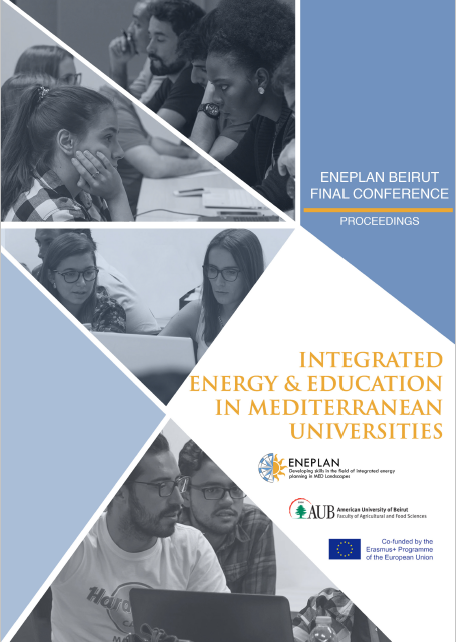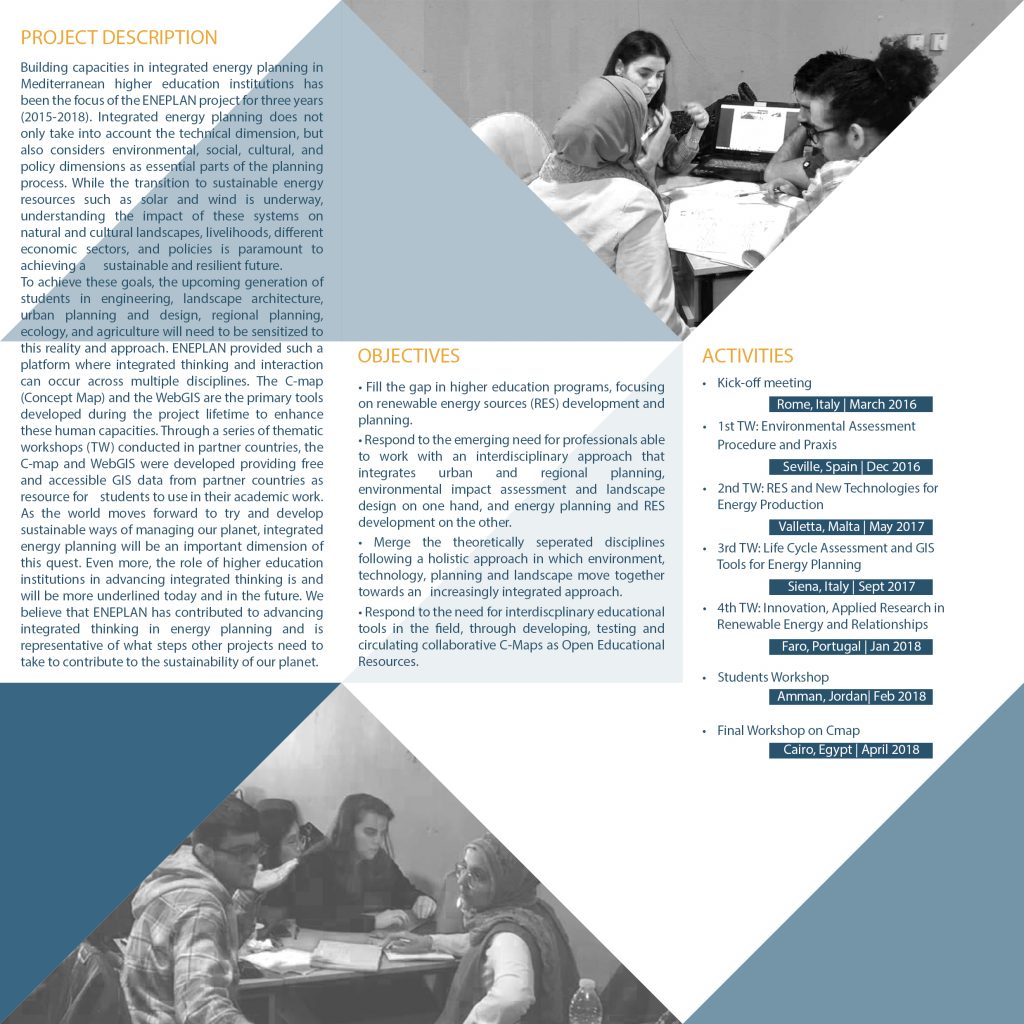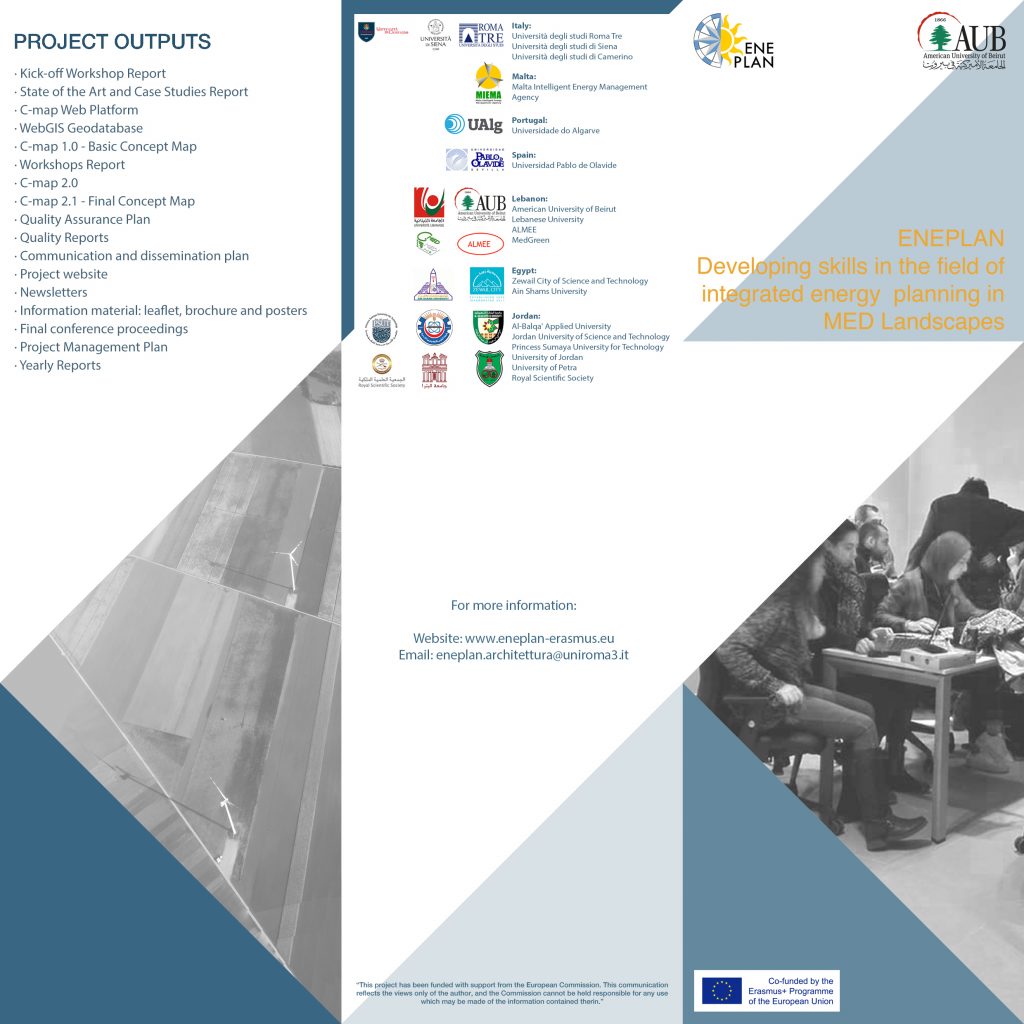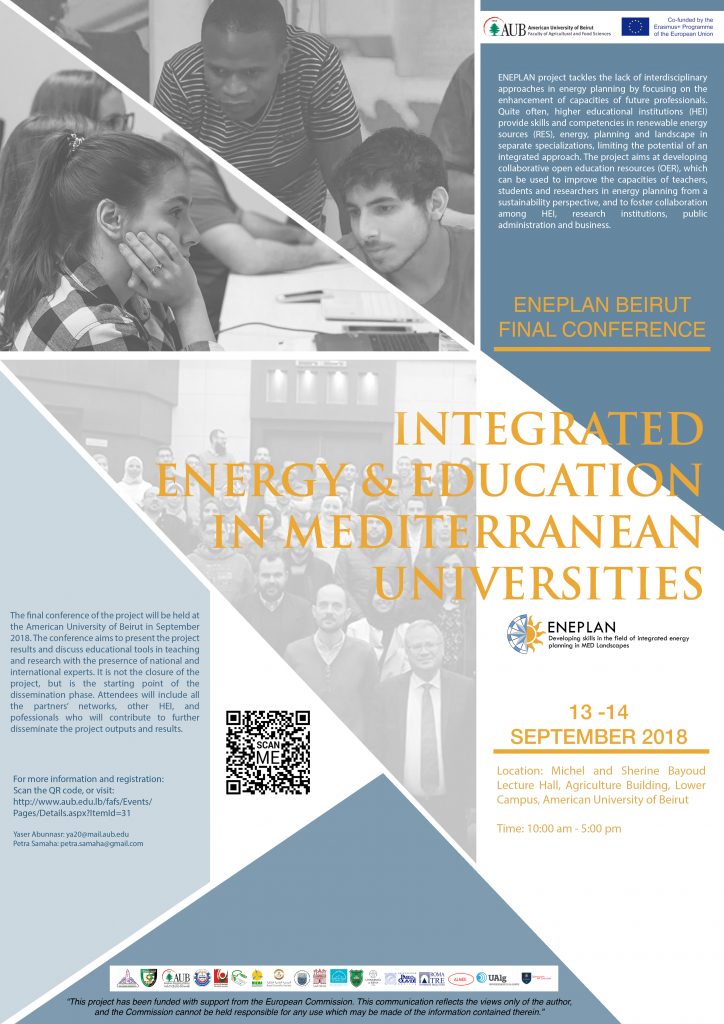The ENEPLAN project aims to advance the offer and effectiveness of Higher Education (HE) programmes, focusing on Renewable Energy Sources (RES) development and planning.
Outcomes – E-learning platform, geodatabase, c-map cloud – are available in the website: www.eneplan-erasmus.eu
To access the book of proceedings of the final conference click on the cover
Final Conference @ American University of Beirut, Beirut – 10-14 September 2018.<a
Context.
The growing diffusion of RES in the Mediterranean area calls for competences and tools to address environmental, social and economic issues conserning new installations and their interaction with landscape, ecosystems, biodiversity, natural resourses, local communities, regulatory context.
Objective.
Eneplan intends to improve the quality of HE teaching and learning programs focussed on RES development and their integrated design. Specific objectives and innovation issues follow.
– Interdisciplinary Higher Education: Eneplan responds to the emerging demand for HE interdisciplinary curricula conceived to integrate knowledge on RES technology with competences in spatial planning, environmental impact assessment, social and economic feasibility and landscape design.
– Open Educational Resources OER: development of OER, open-licensed materials that can be freely used, diffused, improved and exchanged by users. OERs concern a multiplicity of topics including technological, regulatory, environmental and also regarding the relation between renewable energy production and spatial planning.
– Conceptual maps C-maps: it fosters the use of C-maps in order to provide simplified models connecting different aspects of RES design. C-maps can be used as HE tools to be adapted and implemented by users according to their specific objectives.
– Geodatabase: collection of geographical and climatic data to document and highlight concrete RES potentialities and hindrances in the Mediterranean area as a shared tool to be implemented and used in time for both reserach and entrepreneural intiatives for RES deployment.
– E-learning: development of a web platform to share conceptual maps developed during workshops, as well as webgis and other OERs.
– – HE programs: exploitation of project ooutcomes (i.e. OER, C-maps and Geodatabese) for the definition of an interdisciplinary teaching and learning program on RES integrated design to be implemented and exploited by teaching staff and students of partner HEIs.
– HEI networking: establishing a network of Mediterranean HEIs to share competences and improve HE curricula based on OER tools and participatory planning processes.
Kick-off meeting @ Università Roma III, Dept. of Architecture, Rome – 14-18 march 2016. 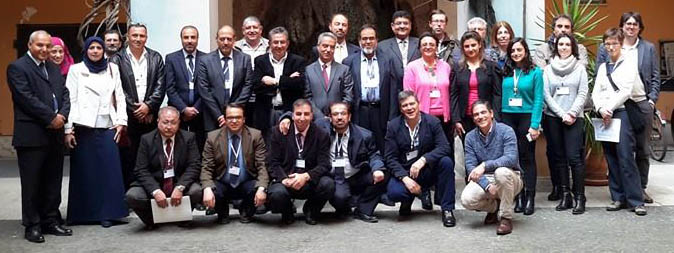
Partnership.
– Università degli studi Roma Tre (Italy)
– Università degli studi di Siena (Italy)
– Università degli studi di Camerino (Italy)
– Malta Intelligent Energy Management Agency (Malta)
– Universitade do Algarve (Portugal)
– Universidad Pablo de Olavide (Spain)
– American University of Beirut (Lebanon)
– Lebanese University (Lebanon)
– Libanaise Association for Energy Saving and Environment ALMEE (Lebanon)
– Mediterranean Durably Green (MEDGREEN)
– Zewail City of Science and Technology (Egypt)
– Ain Shams University (Egypt)
– Al-Balqa’ Applied University (Jordan)
– Jordan University of Science and Technology (Jordan)
– Princess Sumaya University for Technology (Jordan)
– University of Jordan (Jordan)
– Petra Education Company (Jordan)
– Royal Scientific Society (Jordan)
Info.
Website: www.eneplan-erasmus.eu
Programming period: 2015-2017
Programme: ERASMUS Plus Capacity Building
Project acronym: ENEPLAN
Topic: Developing skills in the field of integrated energy planning in MED landscapes
Ref: ENEPLAN project – ref. 2015-3653/001-001
Main output and competences developed by EG: Environmental profiling of Renewable Energy Sources


